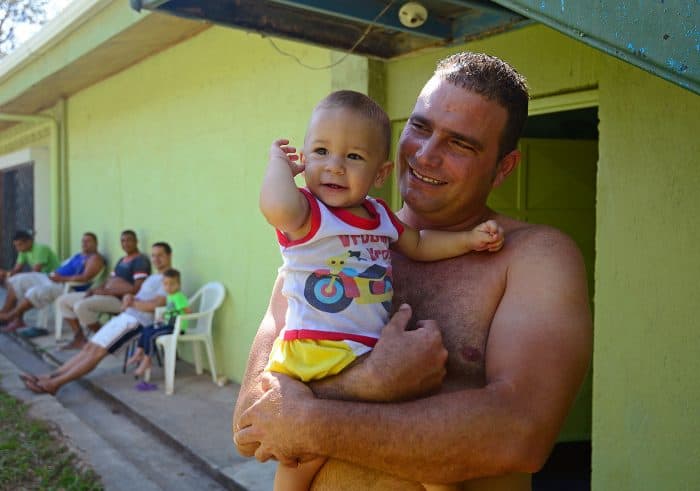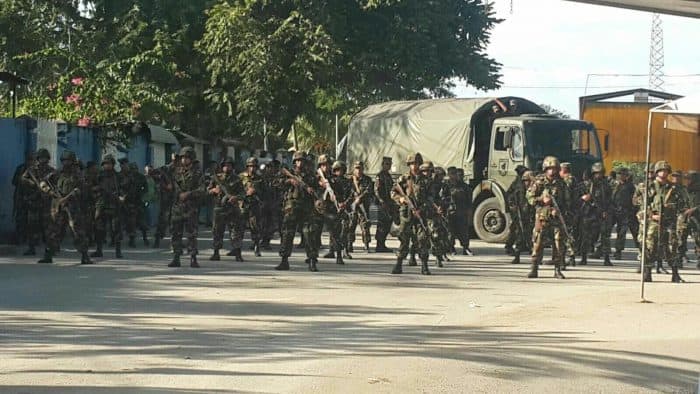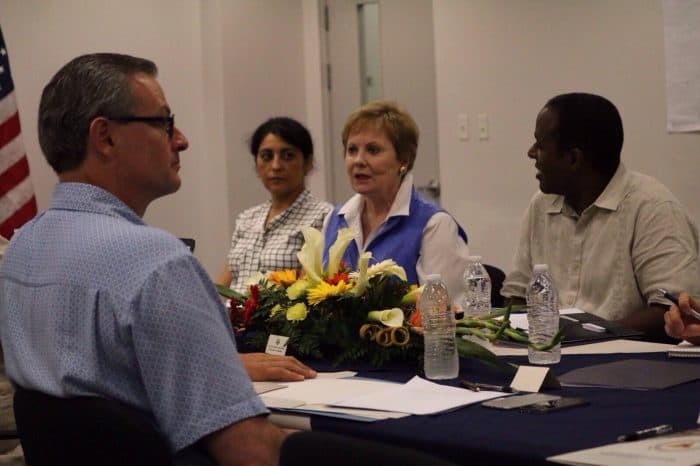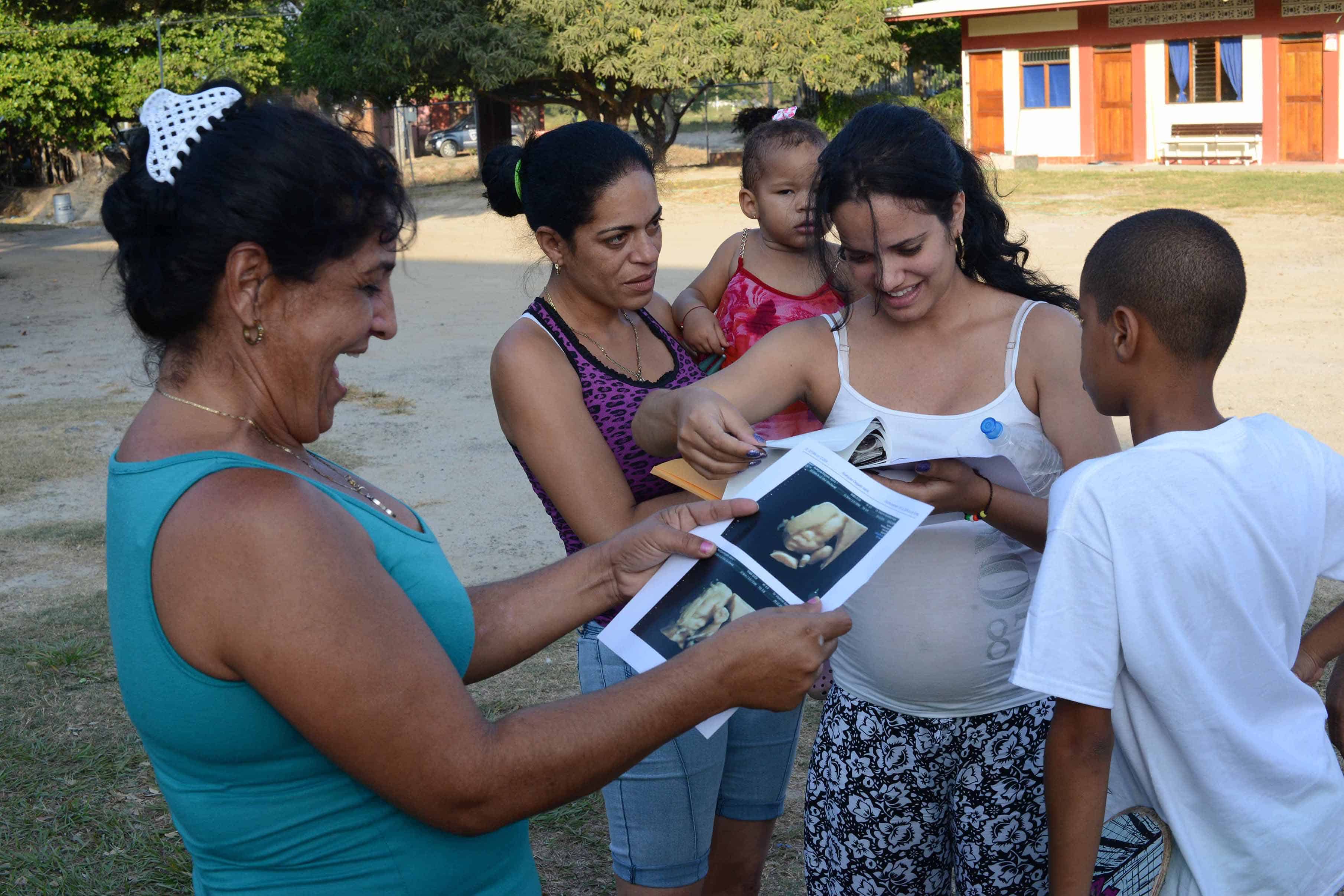LIBERIA, Guanacaste — Cubans risking all to reach the United States are cheering a deal this week between Central American nations to start flying them out of Costa Rica, where they have been stranded for weeks.
Meanwhile the Costa Rican government warned this week it should not be seen as an “open bridge” to America.
“We do not have the resources” to take in any more Cuban migrants, Costa Rican Foreign Minister Manuel González told reporters on Tuesday.
Officials are cautiously describing the operation — due to start next week — as a “pilot plan” involving just 50-200 of the up to 8,000 migrants who are currently in northern Costa Rica, packed into dozens of temporary shelters.
But the Cubans, and the Costa Rican government, believe the scheme to fly the Cubans to El Salvador, then put them on buses to cross Guatemala and Mexico to the U.S. border, will soon be broadened to take most, if not all, of them.

‘We’re going!’
“There was a lot of happiness. Everyone went running to try to call Cuba, to say ‘We’re going! We’ll be getting there [the U.S.] soon!’,” Yaniuska Sousa, one of dozens of Cubans being put up in a Methodist church in the Costa Rican city of Liberia, said of the deal.
She and her husband sold their home in Cuba for $8,000, a quarter of which they spent on air tickets to Ecuador. Almost all the rest of the money was spent in Colombia, on “coyotes,” or people smugglers, and corrupt police milking them for bribes, they said.
The couple left their 11-year-old daughter and 9-year-old son with relatives in Cuba while they made the perilous trip, saying it was too dangerous for children. The husband, René Martí, said there were kidnapping gangs in Colombia and Guatemala that abducted migrant children to demand ransoms, and that water crossings along the way were especially dangerous.
Sousa, almost crying, said that once they made it to America they planned to work hard to be able to fly their children over to join them.
Like many others, they said their pitiful wages in Cuba — $20-$40 a month — did not cover basic necessities and the journey was for economic survival. Sousa said the tough life at home was “the direct results of the politics in Cuba.”
With help from churches and the Red Cross, the Cubans are getting by in the shelters. And life goes on. Sousa and others interrupted a meal they were preparing for the migrants to race outside when a cheer went up.
“A baby!” exclaimed one woman, holding up the first ultrasound photo of the baby a pregnant Cuban woman is carrying.
The woman, her distended belly showing under her white top, and her partner, wearing a U.S. baseball t-shirt and cap, hugged as the migrants clapped.

Nicaragua‘s closed border
The Cuban migrants have been blocked in Costa Rica since mid-November, when Nicaragua, an ally of the Cuban government, prevented them from crossing its border.
Costa Rica’s city of Liberia, close to that border, is expected to be the point of departure for the Cubans to be flown out to bypass Nicaragua completely.
Details, though, are still being worked out and not being made public, out of what Costa Rican officials said was a need for domestic “discretion” in the partner countries.
The United States has also been involved in the discussions but is keeping a low profile.
It has a policy since 1969 of accepting any Cuban refugee who steps on its soil. But at the same time Washington is working to thaw decades of Cold War-era antagonism with Communist-ruled Cuba.
A rapprochement announced a year ago, though, has done little to ease the hardships faced by ordinary Cubans, who are fleeing in record numbers this year.

Cubans warned away
On Tuesday, the U.S. ambassador and a visiting Texas congresswoman, Kay Granger, met with Costa Rican President Luis Guillermo Solís and Foreign Minister González at Liberia’s airport.
The U.S. officials declined to speak publicly at the time, but an embassy spokeswoman said the issue of the Cubans had been discussed in the “routine” visit by Granger.
González later told a news conference that, while Costa Rica had made every effort to shelter the Cubans and negotiate their onward journey, no further Cuban migrants would be taken in.
“The message is very clear: We cannot take them all. We encourage them not to come. The conditions are not there to give proper assistance to them. We have done so far as much as we can,” he said.
Helping out the Cubans now “does not mean… we have opened the gates to everyone to flow to the United States and we are going to serve as an open bridge for them to travel to the United States.”
He also stressed the Cubans being flown out would be covering the plane tickets themselves.
Felix Roque, a Cuban-American doctor who is mayor of a small Latino-majority town called West New York, in New Jersey next to New York City, shook hands with González in Liberia.
He told The Tico Times he wanted to help the Cubans pay for their flights out, and planned to donate his own money. He said the planned donation was in the six figures, but did not specify an exact amount.
“This hurts me in the heart because these are my people. I’m Cuban, I came [to the U.S.] when I was 11 years old to a town where I’m now the mayor, of West New York, and I feel sorry for them,” he told AFP.
Hard-won deal
The migrants became stranded in Costa Rica when Nicaragua, an ally of Cuba, closed its border to them in mid-November.
After a month of fruitless diplomacy with the other member nations of the Central American Integration System (SICA) to let them pass, Costa Rica suspended its political participation in the body, meant to promote regional cooperation.
It also announced that starting Dec. 18, Costa Rica would no longer hand out transit visas to arriving Cuban migrants and would deport them back to their Communist-ruled island. Some 60 are already being processed to be sent home.
On Monday, at an ad-hoc meeting of some Central American countries, Mexico and the International Organization for Migration, the deal was struck to start flying out the Cubans.
It followed an appeal last Sunday by Pope Francis for Central America to end the Cubans’ “humanitarian drama.”
The number of Cubans trying to get to the United States jumped this year, following a December 2014 announcement by Washington and Havana that they were thawing relations frozen since the Cold War.
Many Cubans fear that the rapprochement will put an end to America’s longstanding policy of taking them in if they make it over a land border.
With the U.S. Coast Guard sending back any Cubans intercepted in the waters of the Florida Straits, Cubans increasingly have sought to make the overland journey through Central America and Mexico.
Thousands flew to Ecuador, a South American ally of Cuba’s that allowed them easy entry — until the beginning of this month, when it abruptly reinstated a visa policy.
Recommended: ‘Dusty-foot’ Cubans forgo rafts, choose land route through Costa Rica

